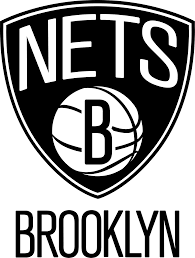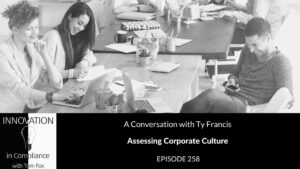What is corporate culture? What are ethical values? What is integrity at your organization? All of these questions are critical to the success of any business. Unfortunately, we usually see the answers to these questions play out in the negative. This week the Brooklyn Nets hit the trifecta of negative answers to all the above.
It all started out with a tweet from that noted freethinker (i.e., flatworlder & anti-vaxxer) Kyrie Irving who, according to Rolling Stone magazine, took to Twitter to boost a movie and book, Hebrews to Negroes, stuffed with antisemitic tropes. The movie espouses ideas in line with more extreme factions of the Black Hebrew Israelites, which have a long history of misogyny, homophobia, xenophobia, Islamophobia, and especially antisemitism. If that was not bad enough, when asked to explain himself in a post-game press conference, Irving was shocked, shocked that anyone would question him, saying according to ESPN, he “does not believe he did anything wrong in promoting an antisemitic film and book on his social media accounts.”
The condemnation was swift from the Nets and other National Basketball Association (NBA) players. According to Rolling Stone, as an organization, “The Brooklyn Nets strongly condemn and have no tolerance for the promotion of any form of hate speech. We believe that in these situations, our first action must be open, honest dialogue. We thank those, including the ADL, who have been supportive during this time.” The Nets owner Joe Tsai also issued a statement Friday night on Twitter expressing, “I’m disappointed that Kyrie appears to support a film based on a book full of anti-Semitic disinformation. I want to sit down and make sure he understands this is hurtful to all of us, and as a man of faith, it is wrong to promote hate based on race, ethnicity or religion.” He added, “This is bigger than basketball.”
Nets (then-more on that below) coach Steve Nash said in Basketball News, “”I just hope that we all go through this together,” Nash said before the Nets game against the Indiana Pacers. “There’s always an opportunity for us to grow and understand new perspectives. “I think the organization is trying to take that stance where we can communicate through this. And try to all come out in a better position and both more understanding and more empathy for every side of this debate and situation,” Nash added.”
According to SI.com, “the Inside the NBA crew of Ernie Johnson, Charles Barkley, Kenny Smith and Shaquille O’Neal had strong opinions on the” tweet and events. “Barkley and O’Neal didn’t pull any punches in ripping Irving, with both hosts referring to him as “an idiot.” Barkley expressed his disappointment that the NBA didn’t suspend Irving, while Shaq called out Irving.”
What does a company do when one of its top producers lays out an antisemitic tweet? Why of course it fires the coach. Of course, the Nets said was it was based on the team’s abysmal start. GM Sean Marks said, “a change is necessary at this time. ESPN noted “it’s exceptionally rare for an NBA coach to be let go on a game day, much less roughly 12 hours after a win (the Nets beat the Indiana Pacers 116-109 on Monday night). Marks explained the business decision had been in the works for days. If the timeline he refers to here is accurate, these conversations would have actually started only a few days into the 2022-23 regular season.” Although Marks said the players had no input into the decision to fire Nash, nothing gets done on the Nets without the input of its star player Kevin Durant. In other words, Irving puts out an antisemitic tweet and the coach is fired. All of that sounds like NCAA enforcement back in the day where when Ohio State was caught violating the recruiting rules, Western Kentucky got put on probation.
But it even gets worse from a culture, reputational and integrity perspective next. Apparently, the Nets are aiming to hire the suspended Boston Celtics head coach Ido Udoka. Udoka was suspended before the season started, according to The Athletic for “having an intimate relationship with a female member of the Celtics organization. The Celtics front office determined Udoka’s actions were unacceptable, and he was unfit to coach the team he had just led to the NBA Finals. They suspended the second-year coach for the entirety of the 2022-23 season.”
The Athletic (and even WOJ) reported that Udoka is on the verge of being awarded the same job in a different organization, not even two months into his suspension. The article went on to ask, “And what about the Nets? Did they even think about the women who work in their organization and how they would be affected by such a hire? Hiring Udoka is a slap in the face to all of those women and women everywhere.”
What is the culture of the Nets? I went to the Nets website to review their Code of Conduct but it is entitled, NBA Fan Code of Conduct. No policy on harassment, discrimination or anything else. Even the Houston Astros had a policy against abuse towards women when they decided it only applied to Astros players and not players from other teams when they traded for Roberto Osuna.
Where is the NBA in all of this? Nowhere to be seen apparently. Once again, I went to the NBA website and no public facing Code of Conduct for itself or its teams.
What does all of this say about the culture, ethics and integrity of the Net? I will leave you to conjugate on that question. What would you do when a top producer violates an accepted norm by supporting a clearly antisemitic movie? Do you think he can claim that there was nothing in the Code of Conduct about it as the Nets apparently have no Code of Conduct? What does it say about its romancing of a new head coach who is currently under suspension for having an inappropriate relationship with a female team employee that the Celtics considered a violation of the team’s organizational guidelines. What will it mean for female employees? Will or even can they ever trust him?
And everyone thought the culture of the Washington Football Team was the worst in sports.




